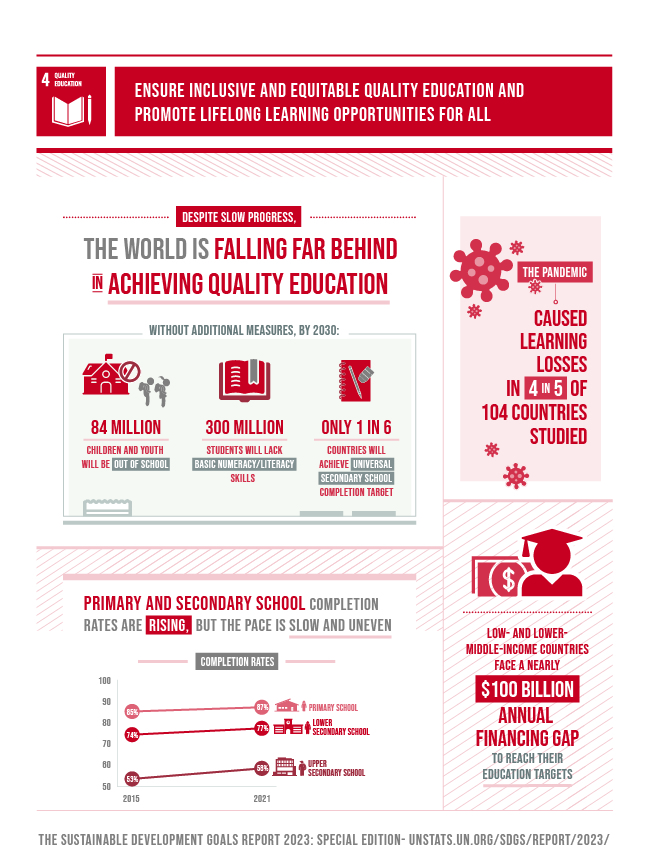Ensure inclusive and equitable quality education and promote lifelong learning opportunities for all
The fourth goal aims to provide inclusive and equitable quality education for all. It emphasizes the importance of accessible education and lifelong learning opportunities, with a focus on promoting knowledge and skills development. SDG 4 recognizes education as a fundamental right and a powerful tool for breaking the cycle of poverty and fostering sustainable development.

- Ensure that all girls and boys complete free, equitable, and quality primary and secondary education with relevant learning outcomes by 2030.
- Provide access to quality early childhood development, care, and pre-primary education for all girls and boys by 2030 to prepare them for primary education.
- Ensure equal access to affordable and quality technical, vocational, and tertiary education, including university, for all women and men by 2030.
- Substantially increase the number of youth and adults with relevant skills, including technical and vocational skills, for employment, decent jobs, and entrepreneurship by 2030.
- Eliminate gender disparities in education and ensure equal access to all levels of education and vocational training for vulnerable groups, including persons with disabilities, indigenous peoples, and children in vulnerable situations by 2030.
- Ensure that all youth and a substantial proportion of adults achieve literacy and numeracy by 2030.
- Equip all learners with knowledge and skills for sustainable development, including education for sustainable development, human rights, gender equality, peace, non-violence, global citizenship, cultural diversity, and culture’s contribution to sustainable development by 2030.
- Build and upgrade education facilities that are child, disability, and gender-sensitive, providing safe, inclusive, and effective learning environments for everyone.
- Substantially increase globally available scholarships for developing countries, especially least developed countries, small island developing States, and African countries, by 2020.
- Expand the supply of qualified teachers, especially in developing countries, through international cooperation for teacher training, focusing on least developed countries and small island developing States by 2030.